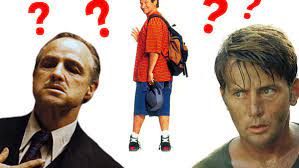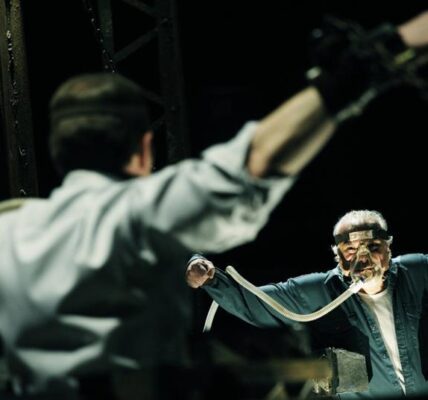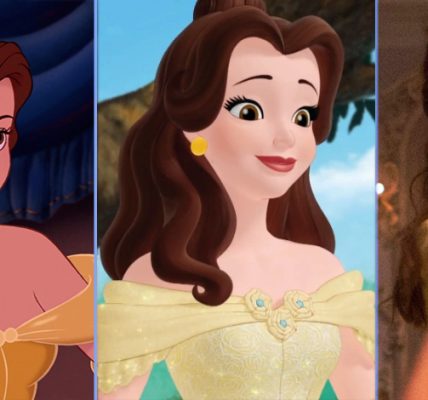The art of filmmaking is a dynamic and ever-evolving tapestry, woven together by the visionary directors who dare to danatoto the boundaries of creativity and storytelling. These cinematic icons not only tell stories but change the very game of filmmaking. Let’s embark on a journey through the annals of cinema to explore the directors who have left an enduring legacy and forever altered the way we experience movies.
Page Contents
- 0.1 1. Alfred Hitchcock: Master of Suspense
- 0.2 2. Stanley Kubrick: A Visionary Auteur
- 0.3 3. Steven Spielberg: The Blockbuster Maestro
- 0.4 4. Akira Kurosawa: Pioneering Japanese Cinema
- 0.5 5. Quentin Tarantino: The Maverick Auteur
- 0.6 6. Francis Ford Coppola: The Godfather of Storytelling
- 0.7 7. Christopher Nolan: Mind-Bending Storytelling
- 0.8 8. Jane Campion: Breaking Barriers for Women Directors
- 0.9 9. Hayao Miyazaki: Animation Maestro
- 0.10 10. Agnès Varda: The Mother of French New Wave
- 0.11 Conclusion: A Tapestry of Cinematic Brilliance
- 1 Author
1. Alfred Hitchcock: Master of Suspense
No discussion of cinematic icons would be complete without Alfred Hitchcock, the unrivaled master of suspense. Hitchcock’s groundbreaking techniques, such as his signature use of suspenseful storytelling and innovative camera work, have set the standard for thriller and suspense genres. Classics like “Psycho” and “Vertigo” remain testaments to his unparalleled influence on the art of filmmaking.
2. Stanley Kubrick: A Visionary Auteur
Stanley Kubrick, known for his meticulous attention to detail and unyielding pursuit of perfection, is a true cinematic auteur. From the mind-bending “2001: A Space Odyssey” to the psychological masterpiece “A Clockwork Orange,” Kubrick’s films are characterized by their visual splendor, narrative complexity, and thought-provoking themes. His influence is felt across genres, making him a true game-changer in the world of cinema.
3. Steven Spielberg: The Blockbuster Maestro
Steven Spielberg is synonymous with the blockbuster era. With a keen eye for storytelling and an uncanny ability to connect with audiences, Spielberg has directed some of the highest-grossing films in cinematic history. From the heartwarming “E.T. the Extra-Terrestrial” to the thrilling “Jurassic Park,” Spielberg’s impact on mainstream cinema is immeasurable.
4. Akira Kurosawa: Pioneering Japanese Cinema
Akira Kurosawa stands as an influential figure not only in Japanese cinema but on a global scale. Renowned for his epic samurai films like “Seven Samurai” and “Rashomon,” Kurosawa’s storytelling prowess and innovative narrative techniques have left an indelible mark on filmmakers worldwide. His influence is evident in genres ranging from Westerns to science fiction.
5. Quentin Tarantino: The Maverick Auteur
Quentin Tarantino is a maverick filmmaker known for his bold, genre-blending approach and distinctive dialogue. From the nonlinear narrative of “Pulp Fiction” to the revisionist history of “Inglourious Basterds,” Tarantino consistently challenges conventions and reshapes cinematic norms, earning him a place among the most influential directors of his generation.
6. Francis Ford Coppola: The Godfather of Storytelling
Francis Ford Coppola, best known for directing “The Godfather” trilogy, is a storytelling virtuoso. His ability to craft compelling narratives and evoke powerful performances from actors has set a standard for cinematic storytelling. Coppola’s impact extends beyond the crime genre, influencing a generation of filmmakers with his commitment to narrative depth and character development.
7. Christopher Nolan: Mind-Bending Storytelling
Christopher Nolan has emerged as a modern-day cinematic icon, celebrated for his mind-bending narratives and groundbreaking use of practical effects. From the reality-bending “Inception” to the visually stunning “Dunkirk,” Nolan consistently challenges audiences to engage with storytelling in new and innovative ways, solidifying his status as a game-changing director.
8. Jane Campion: Breaking Barriers for Women Directors
Jane Campion has been a trailblazer for women directors, breaking barriers and achieving critical acclaim for her unique storytelling perspective. With films like “The Piano” and “Bright Star,” Campion has demonstrated a remarkable ability to explore complex characters and themes, proving that gender is no obstacle to leaving an indelible mark on the world of cinema.
9. Hayao Miyazaki: Animation Maestro
Hayao Miyazaki, the creative force behind Studio Ghibli, has redefined the animation genre with his enchanting and emotionally resonant films. From the magical “Spirited Away” to the environmentally conscious “Princess Mononoke,” Miyazaki’s influence extends beyond animation, making him a cinematic icon who has captivated audiences of all ages.
10. Agnès Varda: The Mother of French New Wave
Agnès Varda, often hailed as the “Mother of French New Wave,” made significant contributions to cinema with her innovative and personal storytelling. Films like “Cleo from 5 to 7” showcase her ability to blend reality and fiction seamlessly. Varda’s impact on the cinematic landscape, particularly as a woman director in a male-dominated industry, is both profound and inspiring.
Conclusion: A Tapestry of Cinematic Brilliance
These cinematic icons have not only directed films; they have sculpted the very essence of storytelling, leaving an enduring imprint on the history of cinema. Their vision, innovation, and storytelling prowess have changed the game, shaping the cinematic landscape for generations to come. As we celebrate these directors, we acknowledge the rich tapestry of cinematic brilliance that continues












